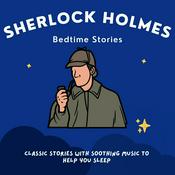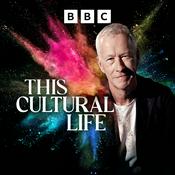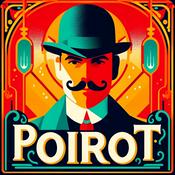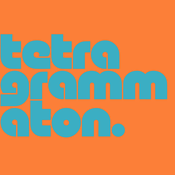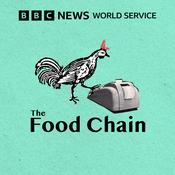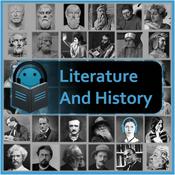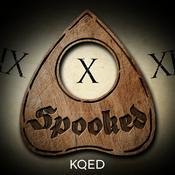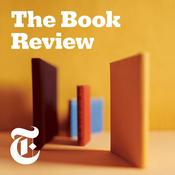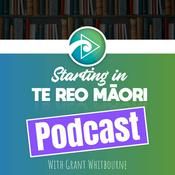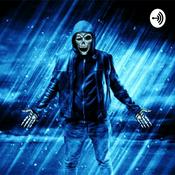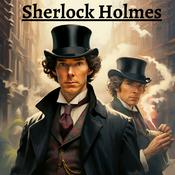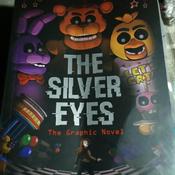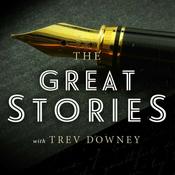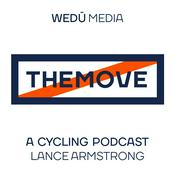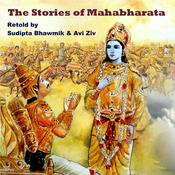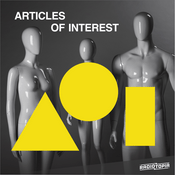1083 episodes
- Science can feel isolating when you don’t see yourself reflected around you. This episode brings together two stories about the search for representation, connection, and belonging in STEM.
Part 1: Graduate student Angelique Allen doesn’t fully understand the strong connection she feels to the 2015 animated film Home.
Part 2: Growing up in segregated 1950s Baltimore, Ken Phillips learns early who society says he can’t be.
Angelique Allen is a graduate student at the University of Oregon, the founder of Dreams of a Scientist, and an aspiring dirtbag. She spends most of her time thinking about science, with a focus on researching octopus brains and creating art that helps integrate science into society. She spends the rest of her time sleeping in the back of her car, climbing rocks, and doing anything she possibly can to see a sea slug (including but not limited to SCUBA diving, snorkeling, and tidepooling). To follow along her scientific journey (and see what her elderly cat is up to) check her out on instagram @angeliques.outthere.
Ken Phillips has served as Curator of Aerospace Science at the California Science Center in Los Angeles since 1990 and is responsible for shaping its exhibits and programs in aeronautics and space exploration. In 1991, he began planning a display of a flown space shuttle orbiter that culminated in NASA awarding the Space Shuttle Endeavour to the California Science Center two decades later. He is now working toward the opening of the 200,000 square-foot Samuel Oschin Air and Space Center for which groundbreaking occurred in June 2022. Ken has taught numerous courses in astrophysics, planetary geology, and space exploration to primary and secondary school students, and is an adjunct professor of the practice of physics and astronomy at the University of Southern California (USC) where he teaches the freshman seminar entitled “The Space Shuttle and our Place in the Universe.” Through the USC Prison Education Program, he also teaches introductory astronomy to students in correctional facilities. He received his bachelor’s in physics from North Carolina A&T State University, a master’s in general engineering from the University of Wisconsin, and a doctorate in environmental engineering from The Johns Hopkins University. Ken loves model trains, swimming, and bull dogs!
See Privacy Policy at https://art19.com/privacy and California Privacy Notice at https://art19.com/privacy#do-not-sell-my-info. - Valentine’s Day may be all about couples, but this week’s episode celebrates heartbreak, breakups, and proudly being single as a Pringle.
Part 1: Getting dumped is the push psychologist Jiawen Huang needs to step outside his comfort zone.
Part 2: While completing her PhD in neuroscience, Leslie Sibener is determined to fix her relationship.
Jiawen Huang obtained his PhD in Psychology from Columbia University, where he studied how prior knowledge provides a scaffold for prediction and memory. He grew up in China, and did his undergrad at University College London where he scanned people watching movies in fMRI scanner. In his free time, he can be found dancing salsa, practicing Spanish, and whittling wood carvings, all of which he started doing this past year.
Leslie Sibener is a neuroscientist and science communicator based in New York City. She received degrees in Neuroscience and Creative Writing from Johns Hopkins University, and her PhD at Columbia University where she studied movement and motor learning. Now as a postdoctoral fellow at Rockefeller University, Leslie researches the mechanisms that allow specific memories to be stored for long term memory in the brain, while others are forgotten. She has always been passionate about sharing science outside of the lab. This has manifested in being the group leader the science writing group NeuWrite, a team member of Stories of WiN, and founder of Scientist on the Subway. Additionally, she has collaborated with a variety other groups, such as BioBus, Facts Machine Podcast, and the Dance Theatre of Harlem, to engage the public with science.
See Privacy Policy at https://art19.com/privacy and California Privacy Notice at https://art19.com/privacy#do-not-sell-my-info. - Both of this week’s stories come from Chan Zuckerberg Initiative’s Rare As One Project grantees, who share their deeply personal experiences with rare diseases and illustrate how research is so essential in the search for better treatments and cures.
(For more stories like these, you can also check out our previous episode The Story Collider produced with Rare As One in 2019, 2021, 2023, and 2024, as well as our Rare Disease playlist.)
Part 1: After multiple relapses, Carlos Guerrero-Anderson takes a chance on an experimental treatment for his rare cancer.
Part 2: Angie Weaver holds onto an unshakable belief that her daughter, who has a rare SCN2A disorder, will beat the odds.
Carlos Guerrero-Anderson is an executive leader and patient advocate committed to amplifying the voices of Hairy Cell Leukemia and rare disease communities. Diagnosed with a rare blood cancer at age 25, Carlos transformed his personal journey into a lifelong mission to advance equity and create inclusive spaces for patients and families. He currently serves as the Director of Multicultural Engagement & Insights at the Hairy Cell Leukemia Foundation, supporting patients through education, outreach to underrepresented communities, data analysis, program promotion, and the sharing of diverse patient stories. With over 20 years of experience in healthcare insights and data-driven communications, Carlos combines strategic expertise with a lived perspective to create and lead culturally responsive programs that strengthen trust, amplify patient voices, and deliver measurable impact across diverse communities. He is an active member of several national patient advocacy groups, and his work has been featured at national conferences, most recently at the NORD Rare Disease Summit 2025. Carlos believes that storytelling is one of the most powerful tools for breaking barriers, building trust, and ensuring that no patient has to fight alone.
Angie Weaver is the Director of Philanthropy and Development for the FamilieSCN2A Foundation, whose mission is to accelerate research, build community, and advocate to improve the lives of those affected by SCN2A-related disorders around the world. After her daughter Amelia was diagnosed with SCN2A, Angie became a passionate advocate for rare disease families—sharing her story to advance research, policy change, and awareness. She lives in northern Minnesota with her husband, Josh, and their youngest daughter, Penelope.
See Privacy Policy at https://art19.com/privacy and California Privacy Notice at https://art19.com/privacy#do-not-sell-my-info. - This week we present two classic stories from people who found an intersection between numbers and their sex life.
Part 1: When online dating isn't working out for him, Tristan Attwood decides to analyze the data himself.
Part 2: In search of a deal, Gastor Almonte ends up with an unmanageable number of condoms.
Tristan Attwood is a recovering analyst working for the airline industry. Originally from the Portland, Oregon, area, Tristan relocated to DC more than a decade ago after serving as a field organizer for a Senate campaign. Having been "unschooled" as a child, Tristan attended Linfield College in Oregon in the early 2000s but did not technically receive a high school diploma until getting his GED from the District of Columbia in 2015. He spends his free time renovating his house, playing dungeons and dragons, and apologizing for the airline industry. He resides in the DC area with his wife, Jessica, and son Roland Tiberius.
Gastor Almonte is a stand-up comedian and storyteller from Brooklyn, NY. He's appeared on Comedy Central's This Is Not Happening, Risk! podcast and the Story Collider Podcast. Timeout magazine named him one of your "New Comedy Obsessions." He's been featured on the New York Comedy Festival, The People's Impov Theater's SoloCom and Cinderblock Comedy Festival. His new album, Immigrant Made, was released in March 2019.
See Privacy Policy at https://art19.com/privacy and California Privacy Notice at https://art19.com/privacy#do-not-sell-my-info. - In this week’s episode, both of our storytellers confront the real-world consequences of misinformation—and how it can spread faster than the truth.
Part 1: Growing up, Modesta Abugu knows firsthand the challenges rural African farmers face. But when she discovers that misinformation is making things worse, she sets out to change the narrative.
Part 2: While living in South Africa, Fiona Tudor Price witnesses how AIDS misinformation devastates an entire nation.
Modesta N. Abugu recently obtained her Ph.D. in the Department of Horticultural Science at North Carolina State University, where she conducted research to identify genetic tools that can be used to improve flavor in sweetpotato, guiding the development of high-quality varieties. As a National Science Foundation interdisciplinary research fellow at the Genetic Engineering and Society Center, NCSU, she examined the scientific, policy, and public-engagement dimensions of agricultural biotechnology within integrated food, energy, and water systems to help develop sustainable and responsive solutions that bridge innovation, policy, and societal needs. Modesta is also passionate about communicating science to the public, especially on the potential of agricultural biotechnology tools in promoting food security. She has been widely involved in grassroots campaigns geared towards creating an enabling policy environment for farmers to gain access to new agricultural innovations globally. Through her awareness and advocacy efforts, she contributed to the passage of Nigeria's biosafety bill into law, and the commercialization of Bt cowpea in Nigeria. Modesta obtained her Bachelor of Science degree in biochemistry from the University of Nigeria in Nsukka, Nigeria, and an MSc in horticultural science from the University of Florida. Outside of work, she loves to hike and visit new places.
Fiona Tudor Price is a seasoned producer, director, and science communicator with a unique blend of expertise in biology, media and education. With a BSc. Hons. in Biology and Film & Television Studies, Fiona began her career at TVOntario and Corus Entertainment, contributing to award-winning environmental and science documentaries. In 1999, she moved to South Africa and founded Atomic Productions, where she directed and produced impactful natural-history content for global networks including National Geographic, Discovery Channel, Animal Planet and WWF. Transforming complex scientific concepts into compelling, human-centred narratives, Fiona earned a reputation for making science accessible to broader audiences. A passionate advocate for women in media, Fiona founded Women in Film and Television South Africa (WIFT SA), providing a platform for mentorship, networking, and empowerment within the industry. She is deeply committed to educational equity, particularly for learners with dyslexia. Fiona collaborated with Decoding Dyslexia, Ontario, to initiate the transformational Ontario Human Rights Commission’s Right to Read inquiry, to address systemic issues in education for learners with dyslexia. Currently, Fiona is a Digital Media and Accessibility Specialist at Humber Polytechnic, focusing on the intersection of multimedia, AI, and accessibility in education, driving innovation at the crossroads of education and technology.
See Privacy Policy at https://art19.com/privacy and California Privacy Notice at https://art19.com/privacy#do-not-sell-my-info.
More Arts podcasts
Trending Arts podcasts
About The Story Collider
Whether we wear a lab coat or haven't seen a test tube since grade school, science is shaping all of our lives. And that means we all have science stories to tell. Every year, we host dozens of live shows all over the country, featuring all kinds of storytellers - researchers, doctors, and engineers of course, but also patients, poets, comedians, cops, and more. Some of our stories are heartbreaking, others are hilarious, but they're all true and all very personal. Welcome to The Story Collider!
Podcast websiteListen to The Story Collider, 99% Invisible and many other podcasts from around the world with the radio.net app
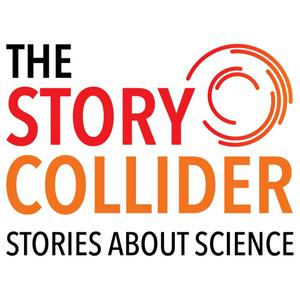
Get the free radio.net app
- Stations and podcasts to bookmark
- Stream via Wi-Fi or Bluetooth
- Supports Carplay & Android Auto
- Many other app features
Get the free radio.net app
- Stations and podcasts to bookmark
- Stream via Wi-Fi or Bluetooth
- Supports Carplay & Android Auto
- Many other app features


The Story Collider
Scan code,
download the app,
start listening.
download the app,
start listening.







